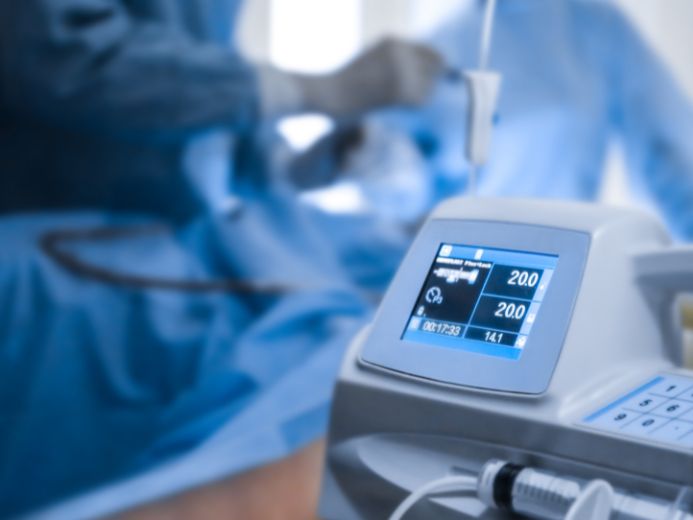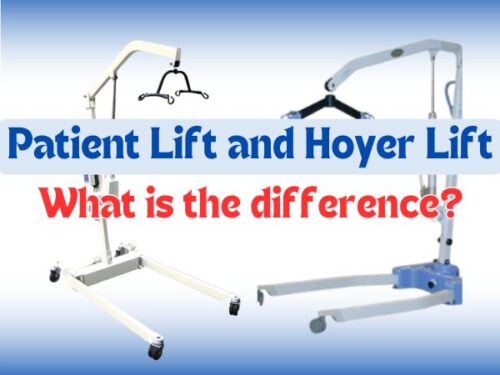In patients with cancer, the chemotherapeutic agents often needed to be delivered constantly at a slower rate. This pattern of medication administration is not in line with the conventionally employed methods of drug delivery. Therefore, newer methods are to be used which fulfill the above-mentioned requirements. Among these, infusion pumps enjoy a special preference as they are employed to deliver nutritional substances as well as medicated liquids. Keeping in mind their features and ease of usage, let us understand how the right kind of infusion pump can be chosen for a particular patient.

Statistics Regarding People Needing Infusion Pumps in the US
According to the National Home Infusion Association (NHIA), approximately 3 million people need an infusion at home or in a healthcare facility in the United States alone. This number has been said to have increased by 300% since 2008. This invasive form of delivery is extensively used in hospitalized patients as well.
What is an Infusion Pump?
An infusion pump is a device that is used to deliver highly viscous fluids such as nutrients or medicated solutions often directly to the patient’s circulatory system in a controlled manner. The device is attached to the patient’s hands, arms, forearms, and dorsal vein of the foot along with the antecubital fossa as well as the inguinal region via a small catheter.
These infusion pumps can be stationary to be used near the patient in clinical setups or at home as well as portable which are employed in ambulances. In addition, wearable infusion pumps are also available. Usually, infusion pumps are assigned to deliver the following chemical agents:
● Antibiotics
● Insulin or other hormones
● Chemotherapeutic agents
● Pain killers
● Total parenteral nutrition (TPN)

Types of Infusion Pumps
Based on their functionality, infusion pumps are of the following types:
● Syringe pumps
● Patient-controlled analgesia pumps (PCA pumps)
● Elastomeric pumps
● Peristaltic linear pumps
● Peristalsis pumps
● Positive displacement pumps
● Rotating peristaltic pumps
● Smart pumps
● Cassette pumps
Characteristics and Advantages of an Infusion Pump
An infusion pump has the following characteristic features:
● It can be adjusted in its rate as well as the duration of fluid delivery.
● A built-in software interface makes it easy for the user to change the settings based on their needs.
● Fluids in very minute concentrations can also be delivered using infusion pumps.
● Fluids can also be administered at a programmed rate as well as at an automated interval.
Choosing the Right Infusion Pump
In a time when the market is filled with multiple options, choosing the right infusion pump can be overwhelming. The decision is to be made based on the patient’s needs as well as the product to be administered. Here is a summarized guide that can be taken as a basis for the selection of the right infusion pump:
● It should be easy to use. The level of complexity varies based on the user i.e. an infusion pump that is to be used by a patient should be simpler as compared to the one operated by a healthcare professional.
● The selection of an infusion pump is determined by the specific volume and rate at which a medication needs to be administered to the patient. If a small amount of medications are to be administered, a syringe pump should be chosen. These are more precise and accurate. However, if the amount of fluid is higher, volumetric pumps are a good choice.
● The required flow rate as well as the volume of the medication should be also considered while buying an infusion pump.
● For a hospitalized patient, the portability of an infusion pump is not essential. However, for a patient residing at home, a pump should be lightweight and portable. If the patient has an active lifestyle, a wearable infusion pump should be preferred.
● An infusion pump that is affixed with safety features should be given preference. These features include alarms or other types of operator alerts which indicate the system failure. In this regard, smart infusion pumps are dominant over the other types.
Infusion Pumps-Brands and Specifications
Multiple brands construct infusion pumps with varying features and utility. Some of these infusion pumps are listed below:
● Baxter Flo-Gard Infusion Pump
The Baxter Flo-Gard volumetric infusion pump is an electromechanical device that can be used for IV delivery. It is a linear peristaltic pump with a delivery rate of 5 ml/hr. A 2.0 Ah sealed lead-acid battery of 12 volts gives a 6-hour working time. Moreover, this battery can be recharged quickly and has an AC power requirement of 110/120 V along with a frequency of 60 Hz. The weight of the product is 5.3 kg (11.6 pounds) and has a one-year warranty.
● ConMed 110 V Compressor Power Pack Infusion Pump
The ConMed Compressor Power Pack infusion pump operates at 110 volts and functions silently, making it ideal for patients who need a tranquil environment. Additionally, this UL-recognized unit is designed for IV pole mounting, enhancing its convenience and usability in various medical settings.

The infusion pumps mentioned in this article, along with many other medical supplies, can be purchased from Health Supply 770, a reliable name when it comes to medical products. They have a 30-day money-back guarantee and provide your products to you in the shortest possible time. Click the link at the end of the article to check the wide range of infusion pumps on the website.
Conclusion
In patients who cannot take food or medications via the oral route or need a drug to be administered at a controlled rate, conventional drug delivery methods are not helpful. In such cases, infusion pumps can be employed which are designed to deliver drugs, hormones, chemotherapeutic agents, as well as nutritional fluids at a specified rate for a particular time duration.
Considering their importance, healthcare facilities should have enough infusion pumps to tackle the patients who need them immediately. Purchasing medical devices from reliable vendors like Health Supply 770 ensures the provision of quality products along with satisfactory services.
Click to Order
Baxter Flo-Gard Volumetric Infusion Pump
ConMed Compressor Power Pack Infusion Pump

PhD Scholar (Pharmaceutics), MPhil (Pharmaceutics), Pharm D, B. Sc.
Uzma Zafar is a dedicated and highly motivated pharmaceutical professional currently pursuing her PhD in Pharmaceutics at the Punjab University College of Pharmacy, University of the Punjab. With a comprehensive academic and research background, Uzma has consistently excelled in her studies, securing first division throughout her educational journey.
Uzma’s passion for the pharmaceutical field is evident from her active engagement during her Doctor of Pharmacy (Pharm.D) program, where she not only mastered industrial techniques and clinical case studies but also delved into marketing strategies and management skills.

















